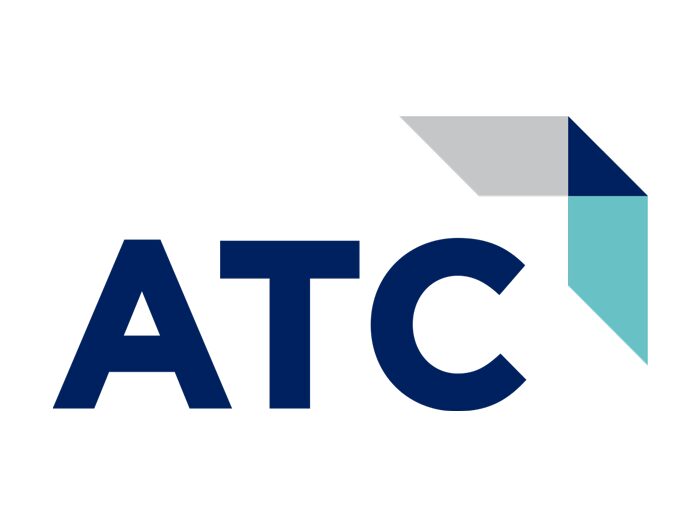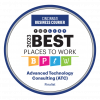
Cloud Based Computing: What Your CEO Should Know
Sometimes what we don’t know can hurt us. And when it comes to cloud computing, what business leaders aren’t aware of could harm their organizations, or at the very least impact their ability to grow. Here are the benefits of cloud-based computing that businesses would be wise to claim for themselves. But first, a few words on cloud basics.
Where and How
With traditional computing, you have a hard drive where all your data is saved. The hard drive is at your location physically. With hosted data solutions, your data is saved to a server offsite and can be accessed from any computer in your organization. Data on the cloud is similar to hosted, but it is stored in multiple locations, which provides additional security. With cloud technology, your employees can access everything they need to do their jobs from just about anywhere there’s an internet connection.
What Are the Benefits of Cloud-Based Computing?
Simply put, cloud-based computing can save on labor, increase productivity, boost security and enhance the ability to create predictable budgets.
Let’s start with a common fear about cloud computing, that it might be insecure. Although your data is easily accessible, it doesn’t mean that it’s open to just anyone. Only people with properly assigned access can get to your company’s data, so it’s extremely secure.
Many CEOs also appreciate that cloud computing shifts the cost of IT infrastructure from capital expenditure (CapEx) to operational expenditure (OpEx). No more being hit with a big bill for an on-premises server that will just need to be replaced again in a few years.
Other benefits to cloud computing include:
- Flexibility. With cloud solutions, you can add or expand tech infrastructure resources quickly, easily and on an immediate as-needed basis. There’s no need to budget ahead for physical storage or on-location equipment.
- Scalability. The cloud eliminates trying to forecast capital technology expenditures. The expense will be in your contract with a cloud computing provider. With cloud computing, your business:
- Only pays for what it uses.
- Can save on the employee hours required to manage on-premises solutions.
- No longer needs to spend time updating appliances and software: it’s all kept up to date in the cloud.
- Is no longer tied to a specific location. With data easily accessed via the internet, staff can work from anywhere.
- Savings on costs and maintenance for devices and software. With applications available in the cloud, they don’t need to be installed on individual user’s computers. Workers can still be productive from a different workstation or when they are traveling.
- Multi-occupancy. Since the cloud is a shared platform, servers can be centralized, resulting in lower costs and increased peak load capacity. Systems that are underutilized can be improved or eliminated.
- Increased productivity. The collaborative nature of cloud-based computing allows users and employees to work on the same data at the same time, which boosts productivity. Coworkers no longer have to email each other for approvals on documents or data.
- Business continuity. You never know when the next disaster or cyber attack will hit. With cloud-based computing’s use of multiple, redundant sites, your data is protected and available at all times. You can greatly decrease the negative impact of downtime on your productivity and profitability.
- Increased security. Providers of cloud services can devote more resources to addressing security issues than most mid-sized businesses. You can take advantage of their ability to stay up to date on technical skills and their investment in leading-edge tools.
The 10,000 Foot View
Want to present your CEO with a high-level summary of reasons to use cloud-based computing? Use this quick rundown.
Cloud based computing:
- Allows staff and stakeholders to access work files remotely.
- Saves on the cost of maintaining and updating software, computers and applications.
- Automatically creates secure backups.
- Is more flexible than in-house technology.
- Means less maintenance.
- Offers much better security.
Public vs. Private Cloud
Many business leaders have questions about the difference between public, private and hybrid cloud solutions. Here’s an analogy that we have found to be helpful: Public clouds are like a big filing cabinet with many drawers. Your data goes into a certain locked drawer to be kept separate from the data stored in other drawers. A private cloud is like a filing cabinet you have all to yourself, which contains only your data.
Using a private cloud is more expensive, but that extra cost could be necessary, depending on the sensitivity of your data. Public cloud storage is more affordable. You can also take a hybrid approach: Using public storage for less sensitive data and private cloud storage for data that requires extra security.
Whatever path you take, you can easily get more “drawers” or “cabinets” if needed, without the expense of adding more physical servers to your office.
Privacy In and Out of the Cloud
You may also run into questions about privacy in terms of the cloud. When comparing cloud vendors, it’s smart to read the fine print in the privacy policy of each vendor. The policies are drafted for both their protection and yours. Your business is only as secure as the vendor’s privacy policy, so if they allow the sharing of your data, that is definitely not a good level of security.
Data stored in a cloud is often located on a greater number of servers, so it will require security that is more complex. Businesses that desire more control over the infrastructure and information security of their cloud might choose a private cloud installation.
As you weigh your options, a trusted partner like ATC can help you choose and implement your cloud solutions to meet your organization’s particular needs.
Tap Into the Benefits of Cloud Computing
Contact us to address any cloud questions and to begin your migration to the cloud. We will analyze your business and implement the right strategy for you. Keep in mind that when moving to a cloud platform, you might not realize all the benefits immediately, but the right IT partner can monitor and adjust your solution so you get the best return on your investment over time.









